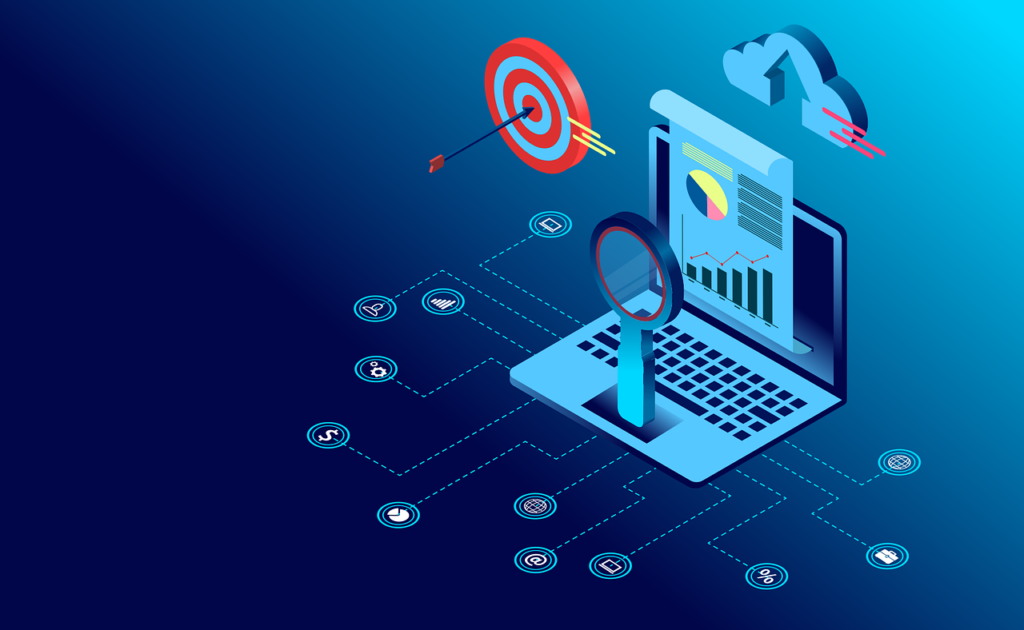This Article has been revised, edited and added to, by Poulomi Chakraborty.
- Understanding GDPR in the Context of Influencer Marketing
- What GDPR Means for Marketers
- Consent is King
- The Right to Be Forgotten
- The Scope of GDPR for Startups
- Defining Personal Data in Influencer Marketing
- Consent: The Cornerstone of GDPR Compliance
- Navigating the Right to Be Forgotten
- Balancing Personalization and Privacy
- Implementing Data Protection by Design
- Collaboration Between Brands and Influencers
- Strategic Benefits of GDPR Compliance
- Embracing GDPR for Long-Term Success
- The Impact of GDPR on Influencer Marketing Tactics
- Choosing the Right Influencers
- Data-Driven Campaigns Under GDPR
- Redefining Audience Targeting Strategies
- Enhancing Data Transparency and Communication
- Integrating Consent Management Platforms
- Crafting GDPR-Compliant Content
- Building GDPR into Campaign Analytics
- Ensuring Third-Party Compliance
- Rethinking Engagement Metrics
- Developing GDPR-Focused Training Programs
- Strategically Navigating GDPR in Influencer Marketing
- GDPR Compliance in Collaborating with Influencers
- Selecting GDPR-Compliant Influencers
- Influencer Agreements and GDPR
- Educating Influencers on GDPR
- Establishing Clear Roles and Responsibilities
- Developing Comprehensive Data Protection Agreements
- Implementing Secure Data Transfer Protocols
- Educating Influencers on GDPR Best Practices
- Monitoring and Auditing Compliance
- Leveraging Technology for Compliance
- Building a Culture of Privacy and Trust
- Responding to Data Breaches
- Strategic Collaboration for GDPR Compliance
- Handling Data in Influencer Campaigns
- Data Collection with Consent
- Secure Data Storage
- Data Sharing and Processing
- Establishing Data Governance Frameworks
- Implementing Role-Based Access Control
- Enforcing Data Anonymization and Pseudonymization
- Conducting Regular Data Audits
- Securing Data Transfers Between Parties
- Developing Incident Response Plans
- Educating Teams on Data Protection
- Monitoring and Reporting Data Usage
- Strategic Data Handling for GDPR Compliance
- Campaign Strategies and GDPR
- Transparency in Campaigns
- Personalization within Legal Limits
- Monitoring and Reporting
- Designing GDPR-Compliant Campaign Frameworks
- Crafting Transparent Data Practices
- Implementing Robust Consent Mechanisms
- Balancing Personalization with Privacy
- Creating a Data Minimization Strategy
- Engaging Influencers in Compliance Processes
- Leveraging Technology for Data Protection
- Monitoring Campaign Performance for Compliance
- Integrating GDPR into Campaign Strategies
- Navigating GDPR Penalties in Influencer Marketing
- The Cost of Non-Compliance
- Real-World Examples
- Avoiding GDPR Fines
- Understanding the Severity of Penalties
- Proactive Compliance Strategies
- Comprehensive Documentation and Record-Keeping
- Implementing Continuous Monitoring Systems
- Building a Compliance-Focused Culture
- Engaging Legal and Data Protection Experts
- Conducting Regular Compliance Audits
- Preparing for Data Breaches
- Leveraging Technology for Compliance
- Strategically Navigating GDPR Penalties
- Conclusion
In the buzzing world of influencer marketing, it’s easy to get caught up in the excitement of reaching millions and forget something crucial – data protection laws like GDPR. GDPR, or the General Data Protection Regulation, isn’t just a bunch of legal jargon; it’s an essential piece of legislation that affects how businesses, including those leveraging influencer marketing, handle personal data.
Since its inception in May 2018, GDPR has set a new standard for data privacy laws globally, giving people more control over their personal information and pushing companies to be more transparent about how they use this data. As a result, any influencer marketing strategy stretching into the EU must be scrutinized through the GDPR lens.
Why is it so important? Non-compliance can lead to hefty fines, true, but there’s more at stake. It’s about trust. When customers know their data is treated with respect, that builds a relationship that goes beyond any marketing campaign. Let’s dive deeper and unravel the GDPR threads within influencer marketing.
Understanding GDPR in the Context of Influencer Marketing

What GDPR Means for Marketers
GDPR affects any organization that processes the personal data of EU citizens, which includes most global influencer marketing campaigns. Under GDPR, personal data is any information that can directly or indirectly identify a person – this could be a name, a photo, an email address, bank details, or even a computer IP address.
Consent is King
One of the keystones of GDPR is consent. In the realm of influencer marketing, this means getting explicit permission from individuals before collecting or using their data. This consent must be clear, informed, and given freely – no small print or confusing jargon allowed.
The Right to Be Forgotten
Another critical aspect of GDPR is the right to erasure, commonly known as the right to be forgotten. This means that an individual can request that their personal data be deleted from your records, and as a marketer, you’re obliged to comply without undue delay.
The Scope of GDPR for Startups
For startup founders, comprehending the full scope of GDPR is essential. GDPR applies to any business that processes the personal data of EU citizens, regardless of where the business is based.
This means that even if your startup operates outside the EU, you must comply with GDPR if your influencer marketing campaigns target EU residents. This global reach of GDPR ensures that data protection standards are maintained universally, making it imperative for startups to understand and implement these regulations from the outset.
Defining Personal Data in Influencer Marketing
In the realm of influencer marketing, personal data encompasses a wide range of information. This can include not only obvious identifiers like names and email addresses but also less direct identifiers such as social media handles, location data, and online behavior.
For startup founders, it’s crucial to recognize that any data that can be linked to an individual falls under GDPR’s purview. This comprehensive definition requires meticulous attention to detail in how data is collected, processed, and stored.
Consent: The Cornerstone of GDPR Compliance
Obtaining explicit consent is at the heart of GDPR compliance. In influencer marketing, this means ensuring that all data collection activities are transparent and consensual. Startups must implement clear consent mechanisms, where individuals are fully informed about what data is being collected and for what purpose.
This consent must be documented and easily retrievable to demonstrate compliance. For startups, investing in robust consent management systems is not just a legal obligation but a strategic move to build trust with their audience.
Navigating the Right to Be Forgotten
The right to be forgotten is a critical aspect of GDPR, granting individuals the ability to request the deletion of their personal data. For startups, this means establishing efficient processes to handle such requests promptly and effectively.
Influencer marketing campaigns often generate vast amounts of data, and ensuring that this data can be securely and comprehensively erased upon request is a complex but necessary task. Implementing automated systems that facilitate data deletion can help startups maintain compliance and protect their reputation.
Balancing Personalization and Privacy
Personalization is a powerful tool in influencer marketing, but it must be balanced with privacy considerations. GDPR mandates that any data used for personalization must be collected and processed lawfully.
Startups need to be transparent about their data practices and ensure that personalized marketing efforts do not infringe on individuals’ privacy rights. This involves using data anonymization techniques and limiting data collection to what is strictly necessary for the campaign.
By prioritizing privacy, startups can still deliver personalized experiences while adhering to GDPR standards.
Implementing Data Protection by Design
Data protection by design is a proactive approach mandated by GDPR, requiring that data protection measures are integrated into business processes from the start. For influencer marketing, this means designing campaigns with privacy in mind, ensuring that data protection principles are embedded in every stage.
Startups should conduct data protection impact assessments (DPIAs) to identify and mitigate potential risks. This strategic approach not only ensures compliance but also enhances the overall security and integrity of marketing operations.
Collaboration Between Brands and Influencers
Successful GDPR compliance in influencer marketing necessitates close collaboration between brands and influencers. Both parties must be aligned on data protection practices and responsibilities. Startups should provide influencers with comprehensive guidelines and training on GDPR requirements.
Clear communication and well-defined agreements are essential to ensure that influencers understand their role in protecting personal data. This collaborative effort helps build a unified approach to compliance, minimizing risks and enhancing the effectiveness of marketing campaigns.
Strategic Benefits of GDPR Compliance
While GDPR compliance may seem daunting, it offers several strategic benefits for startups. Adhering to GDPR standards enhances your brand’s reputation by demonstrating a commitment to data privacy. This builds trust with your audience, leading to stronger customer relationships and increased loyalty.
Moreover, GDPR compliance can provide a competitive advantage, as consumers are becoming increasingly aware of and concerned about data privacy. Startups that prioritize and effectively communicate their commitment to GDPR are likely to attract more discerning customers.
Embracing GDPR for Long-Term Success
Understanding GDPR in the context of influencer marketing is crucial for startup founders. By recognizing the scope of GDPR, defining personal data comprehensively, and implementing robust consent and data protection measures, startups can navigate the complexities of these regulations.
Balancing personalization with privacy, adopting data protection by design, and fostering collaboration between brands and influencers are strategic steps to ensure compliance. Embracing GDPR not only mitigates legal risks but also builds a foundation of trust and transparency, driving long-term success in influencer marketing.
The Impact of GDPR on Influencer Marketing Tactics

Influencer marketing typically involves a lot of data – from selecting the right influencers to targeting the right audience. GDPR requires marketers to take a step back and evaluate how they collect, store, and use this data.
Choosing the Right Influencers
GDPR compliance starts with choosing influencers who understand and adhere to these regulations. They need to be transparent about their partnerships and the data they collect from their followers.
Data-Driven Campaigns Under GDPR
Data is a driving force behind personalized influencer marketing campaigns. Under GDPR, you must ensure that any data used to tailor these campaigns is collected and processed legally, with all the necessary consents.
Redefining Audience Targeting Strategies
For startup founders, GDPR necessitates a rethinking of how audiences are targeted in influencer marketing campaigns. Traditional methods of broad data collection and analysis must be replaced with more ethical and compliant practices.
This means focusing on collecting only the data that is absolutely necessary and ensuring that all data collection processes are transparent and consensual. Startups should leverage anonymized data and aggregate insights to understand audience behaviors without compromising individual privacy. This approach not only ensures compliance but also fosters greater trust and engagement from the audience.
Enhancing Data Transparency and Communication
Transparency is a core tenet of GDPR and a critical factor in influencer marketing. Startups must be clear about how data is collected, used, and stored. This involves creating detailed privacy policies and ensuring that these are communicated effectively to the audience.
When working with influencers, startups should provide them with the necessary information to relay these policies to their followers. Clear and honest communication about data practices builds credibility and trust, enhancing the overall impact of marketing campaigns.
Integrating Consent Management Platforms
Integrating consent management platforms (CMPs) into influencer marketing strategies is essential for GDPR compliance. CMPs help startups manage and document user consent efficiently. For campaigns involving multiple influencers and vast audiences, these platforms streamline the process of obtaining and storing consent records.
By implementing CMPs, startups can ensure that all necessary consents are obtained and that they can demonstrate compliance if audited. This strategic move not only simplifies compliance but also enhances user experience by making consent processes more transparent and user-friendly.
Crafting GDPR-Compliant Content
Creating GDPR-compliant content is a strategic necessity for influencer marketing. This involves ensuring that any personal data used in content creation has been lawfully obtained and that individuals are aware of how their data will be used.
Influencers should be trained to avoid sharing personal data without explicit consent and to use anonymized data wherever possible. For startups, providing influencers with clear guidelines and templates for GDPR-compliant content can help streamline this process and reduce the risk of non-compliance.
Building GDPR into Campaign Analytics
GDPR impacts how startups can analyze the performance of their influencer marketing campaigns. Traditional methods that rely heavily on detailed personal data need to be re-evaluated. Instead, startups should focus on aggregate data and anonymized metrics to measure campaign success.
This might involve using tools that can provide insights without accessing individual user data directly. By adjusting analytics practices to align with GDPR, startups can continue to gain valuable insights while respecting user privacy.
Ensuring Third-Party Compliance
Many influencer marketing campaigns involve third-party tools and platforms for data collection, analytics, and management. Under GDPR, startups are responsible for ensuring that all third-party services they use are compliant with data protection regulations.
This requires conducting thorough due diligence and choosing vendors who prioritize GDPR compliance. Startups should establish clear contracts that outline data protection responsibilities and ensure regular audits to verify ongoing compliance. This proactive approach minimizes risks and ensures that all aspects of the campaign adhere to legal standards.
Rethinking Engagement Metrics
GDPR necessitates a shift in how engagement metrics are viewed and utilized in influencer marketing. Startups must prioritize metrics that do not compromise personal data privacy. This might include focusing on aggregate engagement rates, sentiment analysis, and general trends rather than granular, identifiable user data.
By adopting a privacy-centric approach to metrics, startups can still gauge campaign effectiveness while upholding GDPR principles. This shift not only ensures compliance but also aligns with growing consumer expectations around data privacy.
Developing GDPR-Focused Training Programs
Training and educating all stakeholders involved in influencer marketing campaigns on GDPR is crucial. This includes not only the marketing team but also influencers and any third-party vendors.
Startups should develop comprehensive training programs that cover the basics of GDPR, the importance of consent, data protection best practices, and the specific responsibilities of each party.
Ongoing education ensures that everyone involved is aware of the latest regulations and practices, reducing the risk of non-compliance and enhancing the overall effectiveness of the marketing strategy.
Strategically Navigating GDPR in Influencer Marketing
The impact of GDPR on influencer marketing tactics is profound, requiring startups to strategically navigate these regulations to ensure compliance. By redefining audience targeting, enhancing data transparency, integrating consent management platforms, and crafting GDPR-compliant content, startups can adapt their tactics effectively.
Building GDPR into campaign analytics, ensuring third-party compliance, rethinking engagement metrics, and developing focused training programs further solidify this compliance.
Embracing these strategies not only mitigates legal risks but also builds a foundation of trust and integrity, ultimately leading to more successful and sustainable influencer marketing campaigns.
GDPR Compliance in Collaborating with Influencers

Collaborating with influencers under the GDPR framework means rethinking the approach to partnerships and data handling. Both the brand and the influencer have to be mindful of the legal requirements and align their strategies to protect personal data.
Selecting GDPR-Compliant Influencers
When selecting influencers, brands must consider not only their reach and relevance but also their commitment to data protection. It’s essential to work with influencers who are knowledgeable about GDPR and respect the privacy of their audience.
Influencer Agreements and GDPR
Influencer contracts should include GDPR-specific clauses, detailing how data should be handled and protected. Both parties need to understand their roles – as data controllers or data processors – and the associated responsibilities.
Educating Influencers on GDPR
Education is key. Brands must ensure their influencer partners are fully briefed on GDPR requirements. They should understand the importance of obtaining consent before collecting data and the processes involved in honoring an individual’s rights under GDPR.
Establishing Clear Roles and Responsibilities
For startup founders, clearly defining the roles and responsibilities of both the brand and the influencer is essential for GDPR compliance. In influencer marketing, the brand often acts as the data controller, while the influencer may function as a data processor. This distinction is crucial, as it delineates who is responsible for what aspect of data handling. Detailed contracts should specify these roles and outline the processes for data collection, storage, and usage, ensuring both parties understand their obligations under GDPR.
Developing Comprehensive Data Protection Agreements
Creating comprehensive data protection agreements (DPAs) with influencers is a critical step towards GDPR compliance. These agreements should outline how personal data will be handled, the security measures in place to protect it, and the procedures for addressing data breaches.
For startup founders, these agreements not only ensure compliance but also provide a clear framework for managing data-related risks. DPAs should be reviewed regularly and updated to reflect any changes in data protection laws or practices.
Implementing Secure Data Transfer Protocols
Ensuring the secure transfer of data between the brand and the influencer is paramount. Startups must implement robust data transfer protocols that safeguard personal information during transmission. This includes using encrypted communication channels and secure file-sharing platforms.
By establishing these protocols, startups can prevent unauthorized access and data breaches, maintaining the integrity and confidentiality of personal data. Regular audits and security assessments can help ensure that these protocols remain effective and compliant with GDPR standards.
Educating Influencers on GDPR Best Practices
Education and training for influencers on GDPR best practices are vital for ensuring compliance. Startups should provide influencers with comprehensive training sessions that cover the fundamentals of GDPR, the importance of consent, and how to handle personal data securely.
This training should also include practical guidelines on how to implement these practices in their daily interactions with followers. By equipping influencers with the knowledge and tools to comply with GDPR, startups can reduce the risk of data breaches and enhance the overall effectiveness of their influencer marketing campaigns.
Monitoring and Auditing Compliance
Regular monitoring and auditing of GDPR compliance are necessary to maintain high standards of data protection. Startups should establish mechanisms for ongoing oversight of influencer activities related to data handling. This can involve periodic reviews of data processing activities, consent records, and security measures.
By conducting regular audits, startups can identify potential areas of non-compliance and take corrective actions promptly. This proactive approach not only ensures adherence to GDPR but also builds a culture of continuous improvement and vigilance.
Leveraging Technology for Compliance
Utilizing advanced technology solutions can significantly aid in achieving GDPR compliance in influencer collaborations. Compliance management software can automate many aspects of data protection, from consent management to data breach notifications.
For startup founders, investing in these technologies can streamline compliance efforts and reduce administrative burdens. Additionally, technology can provide real-time insights into compliance status, enabling startups to respond quickly to any issues that arise and ensure ongoing adherence to GDPR requirements.
Building a Culture of Privacy and Trust
Creating a culture of privacy and trust within the organization and among influencer partners is essential for GDPR compliance. Startups should prioritize data protection as a core value and communicate its importance to all stakeholders.
This involves fostering an environment where privacy is respected, and compliance is seen as a collective responsibility. By promoting a culture of transparency and accountability, startups can enhance their reputation and build stronger, more trustful relationships with their audience and influencer partners.
Responding to Data Breaches
Having a clear and effective response plan for data breaches is critical under GDPR. Startups must be prepared to act swiftly in the event of a data breach, ensuring that they can contain the breach, mitigate its impact, and notify the relevant authorities and affected individuals promptly.
This response plan should be well-documented and include roles and responsibilities, communication strategies, and procedures for investigating and addressing breaches. By being prepared, startups can minimize the damage caused by data breaches and demonstrate their commitment to data protection.
Strategic Collaboration for GDPR Compliance
Collaborating with influencers under GDPR requires a strategic and comprehensive approach. By establishing clear roles and responsibilities, developing robust data protection agreements, and implementing secure data transfer protocols, startups can ensure compliance.
Educating influencers on best practices, monitoring compliance, and leveraging technology further enhance data protection efforts. Building a culture of privacy and having a clear breach response plan are essential for maintaining trust and integrity.
Through these strategic measures, startups can navigate the complexities of GDPR compliance, fostering successful and secure influencer marketing partnerships.

Handling Data in Influencer Campaigns
Data handling is a critical element that can make or break GDPR compliance. It’s not just about how data is collected, but also how it’s stored, used, and shared.
Data Collection with Consent
Any data collection that takes place as part of an influencer campaign must be done with explicit consent. This means clear communication with the audience about what data is being collected and for what purpose.
Secure Data Storage
Once collected, personal data must be stored securely, with access limited to authorized personnel only. This is where cybersecurity measures come into play, to prevent data breaches that could lead to GDPR violations.
Data Sharing and Processing
When data is shared between the influencer and the brand, both parties must ensure they are doing so in a manner compliant with GDPR. This means having the proper agreements in place and ensuring that any third-party processors used also comply with GDPR.
Establishing Data Governance Frameworks
For startup founders, establishing robust data governance frameworks is essential for handling data in influencer campaigns. A well-defined framework ensures that data collection, storage, and processing activities are compliant with GDPR from the outset.
This involves creating policies and procedures that outline how data will be managed, who has access to it, and how it will be protected. Implementing these frameworks helps maintain data integrity and security, minimizing the risk of breaches and ensuring that all data handling practices are transparent and accountable.
Implementing Role-Based Access Control
Role-based access control (RBAC) is a critical strategy for securing personal data in influencer campaigns. By limiting data access to only those individuals who need it for their role, startups can reduce the risk of unauthorized access and data breaches.
RBAC involves assigning specific permissions to different roles within the organization, ensuring that sensitive data is only accessible to those with the appropriate authorization.
For startup founders, this means regularly reviewing and updating access controls to reflect changes in roles and responsibilities, ensuring that data is always protected.
Enforcing Data Anonymization and Pseudonymization
Data anonymization and pseudonymization are effective techniques for protecting personal data while still enabling its use in influencer campaigns. Anonymization involves removing personally identifiable information (PII) from data sets, making it impossible to trace the data back to an individual.
Pseudonymization, on the other hand, replaces PII with artificial identifiers, allowing data to be linked to an individual only through additional information kept separately.
For startups, implementing these techniques ensures that data remains useful for analysis and personalization while maintaining compliance with GDPR’s data protection requirements.
Conducting Regular Data Audits
Regular data audits are essential for ensuring ongoing compliance with GDPR in influencer campaigns. These audits involve reviewing data handling practices, assessing security measures, and verifying that all data processing activities are compliant with GDPR standards.
For startup founders, conducting regular audits helps identify potential weaknesses and areas for improvement in data management processes. Audits also provide an opportunity to ensure that all consent records are up-to-date and that data protection measures are being consistently applied across the organization.
Securing Data Transfers Between Parties
Securing data transfers between the brand and influencers is a critical component of GDPR compliance. Startups must ensure that all data transfers are conducted over secure channels, such as encrypted communication platforms or secure file transfer protocols.
This prevents unauthorized access during transmission and protects the integrity of the data. For startup founders, establishing clear protocols for secure data transfers and regularly monitoring these processes is essential for maintaining compliance and protecting personal data.
Developing Incident Response Plans
An effective incident response plan is crucial for addressing data breaches promptly and effectively. GDPR requires that data breaches be reported to relevant authorities within 72 hours, making it essential for startups to have a clear and efficient response strategy.
This plan should outline the steps to be taken in the event of a breach, including identifying the breach, containing it, assessing its impact, and notifying affected individuals and authorities.
For startup founders, having a well-prepared incident response plan minimizes the damage caused by data breaches and demonstrates a commitment to data protection.
Educating Teams on Data Protection
Education and training are fundamental for ensuring that all team members understand their roles and responsibilities in handling data within influencer campaigns. Startups should implement regular training sessions that cover GDPR principles, data protection best practices, and specific protocols for managing personal data.
By fostering a culture of awareness and accountability, startups can ensure that everyone involved in the campaign is committed to maintaining high standards of data protection.
Monitoring and Reporting Data Usage
Continuous monitoring and reporting of data usage are essential for ensuring GDPR compliance. Startups should implement systems that track how data is being used, who is accessing it, and any changes made to it.
This level of oversight helps identify potential issues early and ensures that data handling practices remain compliant with GDPR. For startup founders, regular reporting provides valuable insights into data management processes and helps maintain transparency and accountability.
Strategic Data Handling for GDPR Compliance
Handling data in influencer campaigns requires a strategic approach that prioritizes data protection and GDPR compliance. By establishing robust data governance frameworks, implementing role-based access control, and enforcing data anonymization and pseudonymization, startups can ensure the security and integrity of personal data.
Conducting regular data audits, securing data transfers, and developing effective incident response plans further enhance compliance efforts. Educating teams and continuously monitoring data usage are essential for maintaining high standards of data protection.
Through these strategic measures, startups can navigate the complexities of GDPR, ensuring that their influencer marketing campaigns are both effective and compliant.
Campaign Strategies and GDPR

Crafting influencer marketing campaigns while keeping GDPR in mind can seem daunting, but it’s an opportunity to build trust and engage with your audience on a more transparent level.
Transparency in Campaigns
Transparency isn’t just a GDPR requirement; it’s what customers expect. Clear communication about sponsorships, advertisements, and data collection can enhance trust and credibility.
Personalization within Legal Limits
Personalized campaigns are effective but must be conducted within the confines of GDPR. This means relying on data that has been obtained lawfully and with proper consent.
Monitoring and Reporting
Monitoring campaigns for GDPR compliance is an ongoing process. It requires regular checks and the ability to produce reports that can demonstrate compliance, should a supervisory authority inquire.
Designing GDPR-Compliant Campaign Frameworks
For startup founders, the foundation of any GDPR-compliant campaign lies in its design. From the outset, campaigns must be structured with data protection principles at their core. This involves conducting thorough data protection impact assessments (DPIAs) to identify potential risks and implementing measures to mitigate them.
By embedding GDPR compliance into the campaign design phase, startups can ensure that data protection is not an afterthought but an integral part of the strategy. This proactive approach helps in identifying and addressing potential compliance issues before they become problematic.
Crafting Transparent Data Practices
Transparency is a critical element of GDPR and a cornerstone of successful influencer marketing campaigns. Startups must clearly communicate how data will be collected, used, and protected throughout the campaign.
This includes providing detailed privacy notices that are easily accessible and understandable for the audience. Transparency also involves being upfront about the involvement of influencers and their role in data collection.
By crafting transparent data practices, startups can build trust with their audience, ensuring that they are informed and comfortable with how their data is being handled.
Implementing Robust Consent Mechanisms
Obtaining explicit and informed consent is a fundamental requirement of GDPR. Startups must develop robust consent mechanisms that are clear, concise, and easily accessible.
This means creating consent forms that are straightforward and free of legal jargon, explaining exactly what data will be collected, why it is needed, and how it will be used.
Consent must be obtained prior to any data collection and should be documented and stored securely. Implementing these mechanisms ensures that startups comply with GDPR and respect the privacy rights of their audience.
Balancing Personalization with Privacy
Personalization is a powerful tool in influencer marketing, but it must be balanced with privacy considerations under GDPR. Startups should use data minimally and only as necessary to achieve the desired level of personalization.
Techniques such as data anonymization and pseudonymization can help in using data without compromising privacy. Additionally, startups should avoid over-personalization that may intrude on personal privacy.
Striking the right balance between personalization and privacy helps in creating engaging and relevant campaigns while maintaining GDPR compliance.
Creating a Data Minimization Strategy
Data minimization is a key principle of GDPR, which mandates that only the data necessary for the intended purpose should be collected and processed. For startup founders, this means carefully evaluating what data is truly needed for the campaign and avoiding unnecessary data collection.
Developing a data minimization strategy involves identifying essential data points, streamlining data collection processes, and regularly reviewing data practices to ensure compliance. This approach not only aligns with GDPR requirements but also reduces the risk of data breaches and enhances data security.
Engaging Influencers in Compliance Processes
Engaging influencers in the compliance process is crucial for ensuring that GDPR principles are upheld throughout the campaign. Startups should provide influencers with clear guidelines on data protection practices and involve them in compliance training sessions.
By fostering a collaborative approach to compliance, startups can ensure that influencers understand their responsibilities and the importance of protecting personal data. This partnership helps in creating a unified front for GDPR compliance, enhancing the overall integrity and effectiveness of the campaign.
Leveraging Technology for Data Protection
Technology plays a vital role in ensuring GDPR compliance in influencer marketing campaigns. Startups should leverage advanced data protection tools and software to manage consent, monitor data usage, and secure personal information.
These technologies can automate compliance processes, making it easier to track and document data protection activities. Additionally, startups can use analytics tools that prioritize privacy, ensuring that data insights are obtained without compromising personal information.
By integrating technology into their compliance strategy, startups can enhance efficiency and reduce the risk of non-compliance.
Monitoring Campaign Performance for Compliance
Monitoring the performance of influencer marketing campaigns is essential for maintaining GDPR compliance. Startups should establish clear metrics to evaluate both the effectiveness of the campaign and its adherence to data protection regulations.
This involves regular audits of data processing activities, reviewing consent records, and assessing the security measures in place. By continuously monitoring compliance, startups can identify and address any issues promptly, ensuring that their campaigns remain within the bounds of GDPR.
This ongoing vigilance is key to maintaining a high standard of data protection and building trust with the audience.
Integrating GDPR into Campaign Strategies
Integrating GDPR into influencer marketing campaign strategies requires a comprehensive and proactive approach. By designing campaigns with data protection at their core, crafting transparent data practices, and implementing robust consent mechanisms, startups can ensure compliance from the outset.
Balancing personalization with privacy, creating data minimization strategies, and engaging influencers in compliance processes further enhance the effectiveness of GDPR adherence.
Leveraging technology and continuously monitoring campaign performance for compliance are essential for maintaining high standards of data protection. Through these strategic measures, startups can navigate the complexities of GDPR, building trust with their audience and achieving long-term success in influencer marketing.
Navigating GDPR Penalties in Influencer Marketing

Understanding the potential penalties for GDPR non-compliance can help to underline the importance of adhering to these regulations. The fines can be substantial, serving as a deterrent and a reminder to handle personal data with care.
The Cost of Non-Compliance
GDPR has set forth fines that can reach up to €20 million or 4% of the annual global turnover of the company, whichever is higher. These are not just theoretical numbers; businesses have faced real financial repercussions for not complying with the regulation.
Real-World Examples
There have been instances where companies have been fined heavily for GDPR breaches. These examples serve as lessons for businesses involved in influencer marketing to take GDPR seriously and ensure all their practices are compliant.
Avoiding GDPR Fines
To avoid fines, companies must not only comply with GDPR but also demonstrate their compliance. This involves having clear records of data processing activities, consent forms, and data protection impact assessments.
Understanding the Severity of Penalties
For startup founders, understanding the severity of GDPR penalties is crucial. Non-compliance can result in fines of up to €20 million or 4% of the annual global turnover, whichever is higher.
These substantial penalties are designed to enforce strict adherence to data protection regulations. Beyond financial implications, penalties can also include reputational damage and loss of customer trust.
Recognizing the gravity of these penalties underscores the importance of implementing robust data protection measures in all influencer marketing activities.
Proactive Compliance Strategies
Implementing proactive compliance strategies is essential for avoiding GDPR penalties. Startups should adopt a forward-thinking approach by integrating GDPR requirements into their marketing strategies from the outset.
This involves conducting regular risk assessments to identify potential vulnerabilities and addressing them promptly. By staying ahead of potential compliance issues, startups can minimize the risk of violations and ensure that their data handling practices are consistently aligned with GDPR standards.
Comprehensive Documentation and Record-Keeping
Maintaining comprehensive documentation and record-keeping is a critical aspect of GDPR compliance. Startups must document all data processing activities, including how data is collected, processed, stored, and shared. This documentation should also include consent records and data protection impact assessments (DPIAs).
In the event of an audit or investigation, having detailed records readily available demonstrates a commitment to compliance and can significantly mitigate the impact of any potential penalties.
Implementing Continuous Monitoring Systems
Continuous monitoring systems are vital for ensuring ongoing GDPR compliance. Startups should implement automated tools that track data processing activities in real time, flagging any anomalies or potential breaches.
These systems provide early warnings, allowing startups to address issues before they escalate into significant problems. By maintaining continuous oversight, startups can ensure that their data handling practices remain compliant and reduce the likelihood of incurring penalties.
Building a Compliance-Focused Culture
Creating a compliance-focused culture within the organization is essential for maintaining GDPR adherence. This involves training employees at all levels on GDPR requirements and best practices, fostering a sense of shared responsibility for data protection.
Startup founders should lead by example, emphasizing the importance of compliance in all business activities. By ingraining a culture of compliance, startups can ensure that data protection is prioritized and that potential risks are proactively managed.
Engaging Legal and Data Protection Experts
Engaging legal and data protection experts can provide invaluable guidance in navigating GDPR complexities. Startups should consult with legal advisors and data protection officers (DPOs) to ensure that their practices meet regulatory standards.
These experts can offer insights into the latest GDPR developments, help interpret specific provisions, and provide strategic advice on mitigating risks. For startup founders, investing in expert advice can be a crucial step in avoiding costly penalties and ensuring robust compliance.
Conducting Regular Compliance Audits
Regular compliance audits are essential for identifying and addressing potential GDPR violations. Startups should schedule periodic audits to review their data protection practices and ensure that they align with regulatory requirements.
These audits should cover all aspects of data handling, from consent management to data security measures. By conducting thorough and regular audits, startups can identify areas for improvement and take corrective actions before issues result in penalties.
Preparing for Data Breaches
Being prepared for data breaches is a critical component of GDPR compliance. Startups must have a clear and effective breach response plan in place, detailing the steps to be taken in the event of a breach.
This plan should include procedures for containing the breach, assessing its impact, notifying affected individuals and authorities, and implementing corrective measures. By being prepared, startups can minimize the impact of a breach and demonstrate a proactive approach to data protection, reducing the likelihood of severe penalties.
Leveraging Technology for Compliance
Leveraging technology can significantly enhance GDPR compliance efforts. Startups should utilize compliance management software that automates various aspects of data protection, such as consent tracking, data anonymization, and breach reporting.
These tools can streamline compliance processes, reduce the risk of human error, and ensure that all data handling practices meet regulatory standards. By integrating technology into their compliance strategy, startups can enhance efficiency and effectiveness in navigating GDPR requirements.
Strategically Navigating GDPR Penalties
Navigating GDPR penalties requires a strategic and proactive approach for startup founders. Understanding the severity of penalties and implementing comprehensive compliance strategies are essential for mitigating risks.
By maintaining detailed documentation, leveraging continuous monitoring systems, and fostering a compliance-focused culture, startups can ensure robust adherence to GDPR.
Engaging legal experts, conducting regular audits, and preparing for data breaches further strengthen compliance efforts. Leveraging technology enhances these strategies, providing startups with the tools to effectively manage data protection.
Through these strategic measures, startups can navigate the complexities of GDPR, avoid costly penalties, and build a foundation of trust and integrity in their influencer marketing campaigns.
Conclusion
In conclusion, GDPR compliance is not just a legal necessity but a competitive advantage in the world of influencer marketing. It ensures that campaigns are built on a foundation of trust and transparency, which is vital for long-term success in an increasingly data-conscious world. Incorporating GDPR into the core of influencer marketing strategies helps protect not only personal data but also the integrity of the brand and the trust of the consumers. It is a commitment to conducting business responsibly in the digital age, where data privacy is paramount.
As we adapt to this era of stringent data protection regulations, the importance of GDPR compliance will only grow stronger. By embracing GDPR, marketers and influencers alike can pave the way for more authentic, secure, and successful partnerships. This extensive exploration of GDPR in influencer marketing demonstrates how intertwined data protection and marketing have become. With the right approach, GDPR compliance can be seamlessly integrated into marketing strategies, benefitting both the business and the consumer.
Read Next
- The Role of Webinars and Live Events in Affiliate Marketing Success
- Affiliate Marketing for the Food and Beverage Industry: Promoting Culinary Delights
- The Power of Influencer Partnerships in Affiliate Marketing
- Affiliate Marketing for the Education Sector: Promoting Courses and Learning Tools
- Affiliate Marketing for Local Businesses: Building Loyalty and Earning Commissions






















Comments are closed.